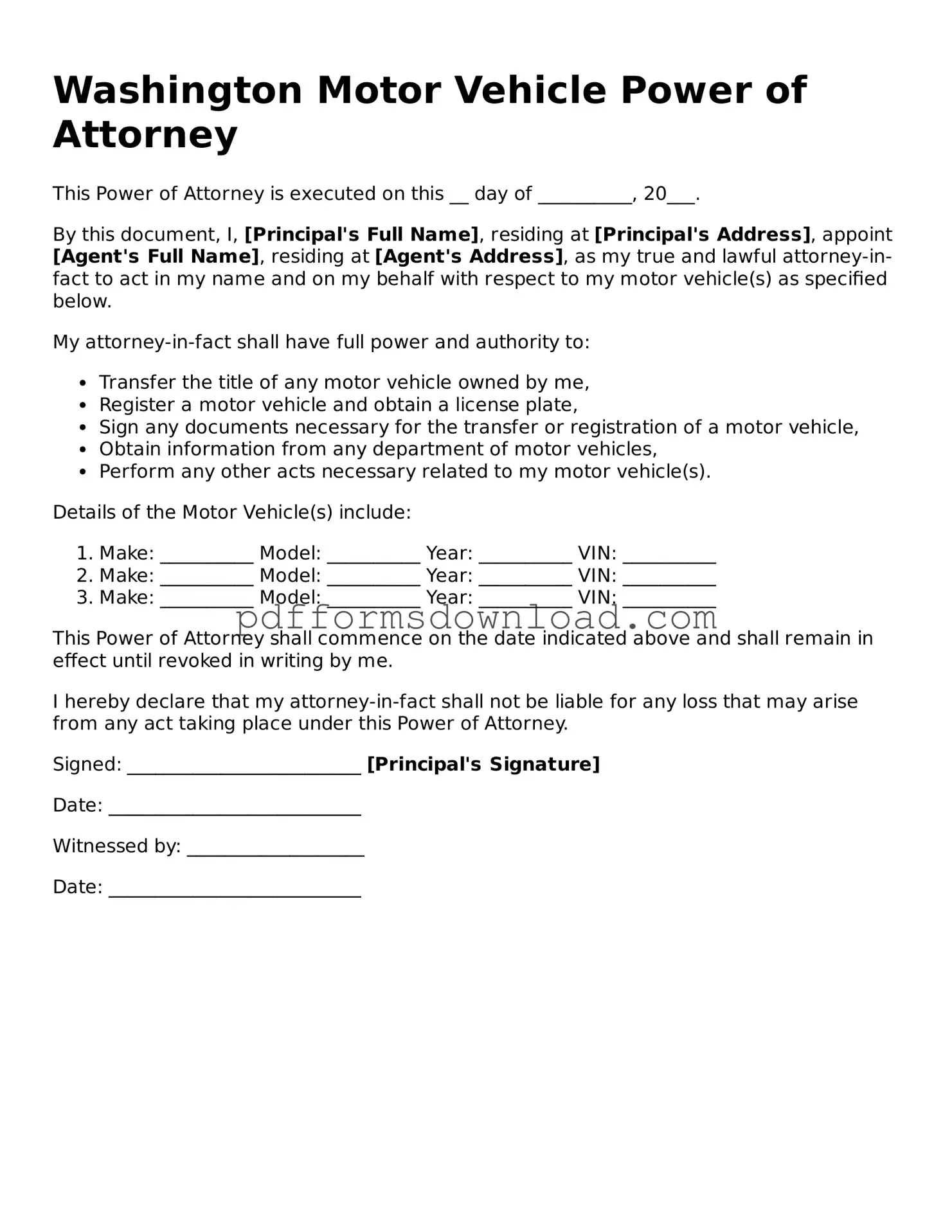Printable Washington Motor Vehicle Power of Attorney Form
The Washington Motor Vehicle Power of Attorney form allows an individual to designate another person to act on their behalf regarding motor vehicle transactions. This legal document ensures that your chosen representative can handle tasks such as registering a vehicle, transferring ownership, or obtaining title documents. To get started, fill out the form by clicking the button below.
Make This Document Now

Printable Washington Motor Vehicle Power of Attorney Form
Make This Document Now

Make This Document Now
or
Free PDF File
Your form is almost ready
Complete your Motor Vehicle Power of Attorney online — edit, save, and download easily.